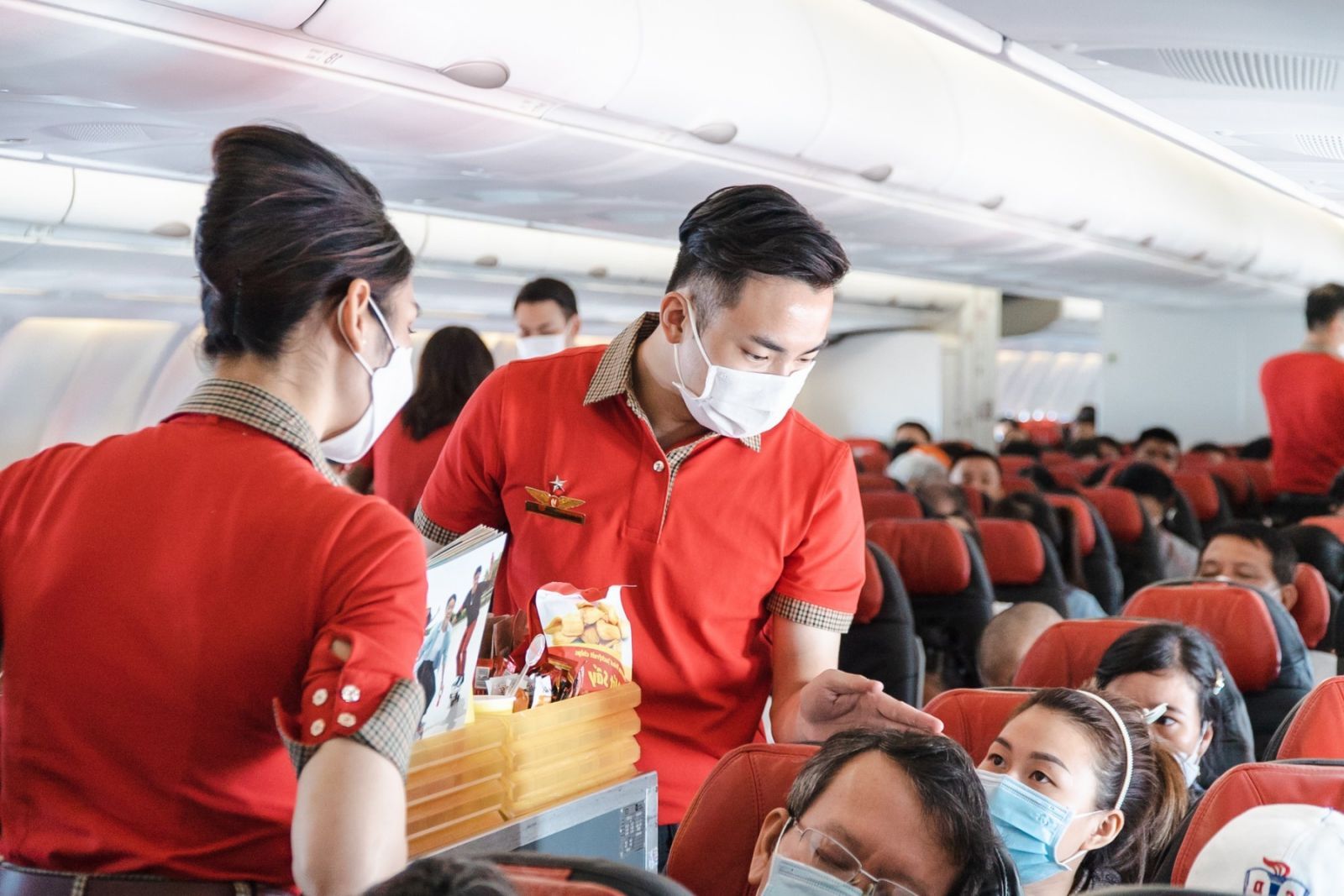
Ever wondered what makes airline services tick? From the moment you book a ticket to the time you land at your destination, a lot happens behind the scenes. Airlines juggle numerous tasks to ensure a smooth journey for passengers. Did you know that the average commercial flight carries around 100,000 pounds of fuel? That's just one of many intriguing facts about airline services. Airlines also employ thousands of people worldwide, from pilots to ground staff, to keep everything running smoothly. Understanding these details can make your next flight more interesting and perhaps even a bit more enjoyable. Buckle up as we dive into 25 fascinating facts about airline services!
Key Takeaways:
- Airline services have a rich history dating back to the early 1900s, with milestones like the first commercial flight and the introduction of the Boeing 747, revolutionizing air travel.
- Technological advancements have transformed airline services, from GPS navigation to in-flight entertainment, making air travel safer, faster, and more enjoyable for passengers.
History of Airline Services
Airline services have a rich history that spans over a century. From the first commercial flights to the modern aviation industry, many fascinating facts have emerged.
- The first scheduled commercial airline flight took place on January 1, 1914, between St. Petersburg and Tampa, Florida.
- KLM Royal Dutch Airlines, founded in 1919, is the world's oldest airline still operating under its original name.
- Pan American World Airways, commonly known as Pan Am, was the first airline to offer a round-the-world ticket in 1947.
- In 1952, the de Havilland Comet became the first commercial jet airliner, revolutionizing air travel with its speed and comfort.
- The Boeing 747, introduced in 1970, was the first wide-body aircraft and could carry more than 400 passengers.
Technological Advancements
Technology has played a crucial role in transforming airline services. Innovations have made air travel safer, faster, and more efficient.
- The introduction of the Global Positioning System (GPS) in the 1990s significantly improved navigation accuracy for pilots.
- Modern aircraft are equipped with fly-by-wire systems, which replace traditional manual flight controls with electronic interfaces.
- In-flight entertainment systems, first introduced in the 1980s, now offer passengers a wide range of movies, music, and games.
- The use of composite materials in aircraft construction has reduced weight and increased fuel efficiency.
- Advanced weather radar systems help pilots avoid turbulence and severe weather conditions, ensuring smoother flights.
Airline Safety
Safety is a top priority for airlines. Numerous measures and regulations have been implemented to protect passengers and crew.
- The Federal Aviation Administration (FAA) was established in 1958 to regulate all aspects of civil aviation in the United States.
- Modern aircraft undergo rigorous testing, including stress tests, to ensure they can withstand extreme conditions.
- The "black box," or flight data recorder, was invented in the 1950s to help investigators understand the causes of accidents.
- Air traffic control systems coordinate the movement of aircraft on the ground and in the air, preventing collisions.
- Airlines conduct regular safety drills and training for their crew members to prepare for emergencies.
Environmental Impact
Airline services have a significant impact on the environment. Efforts are being made to reduce carbon emissions and promote sustainability.
- The aviation industry is responsible for approximately 2-3% of global carbon dioxide emissions.
- Airlines are investing in more fuel-efficient aircraft to reduce their carbon footprint.
- Sustainable aviation fuel (SAF), made from renewable resources, is being developed as an alternative to traditional jet fuel.
- Some airlines have implemented carbon offset programs, allowing passengers to compensate for their flight's emissions.
- The International Air Transport Association (IATA) has set a goal for the aviation industry to achieve net-zero carbon emissions by 2050.
Passenger Experience
The passenger experience has evolved significantly over the years. Airlines strive to provide comfort, convenience, and excellent service.
- The first in-flight meal was served in 1919 on a Handley Page flight from London to Paris.
- Frequent flyer programs, introduced in the 1980s, reward loyal passengers with points that can be redeemed for flights and other benefits.
- Many airlines now offer Wi-Fi on board, allowing passengers to stay connected during their flight.
- Premium cabins, such as business and first class, provide luxurious amenities like lie-flat seats, gourmet meals, and private suites.
- Airlines have introduced self-service kiosks and mobile apps to streamline the check-in process and reduce wait times.
Final Take on Airline Services
Airline services have come a long way, offering more than just a means to get from point A to point B. From the in-flight entertainment to the frequent flyer programs, airlines strive to make your journey as comfortable and enjoyable as possible. Safety measures and customer service remain top priorities, ensuring passengers feel secure and valued. Technological advancements like online check-ins and mobile boarding passes have streamlined the travel experience. Environmental initiatives show airlines' commitment to sustainability. Knowing these facts can help you make informed choices and appreciate the complexities behind every flight. Next time you board a plane, you'll have a deeper understanding of what goes into making your trip smooth and memorable. Safe travels!
Frequently Asked Questions
Was this page helpful?
Our commitment to delivering trustworthy and engaging content is at the heart of what we do. Each fact on our site is contributed by real users like you, bringing a wealth of diverse insights and information. To ensure the highest standards of accuracy and reliability, our dedicated editors meticulously review each submission. This process guarantees that the facts we share are not only fascinating but also credible. Trust in our commitment to quality and authenticity as you explore and learn with us.
